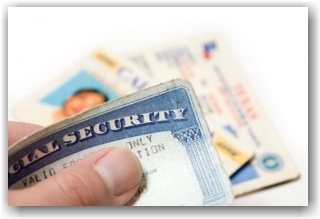Can Driver Authorization Cards be used as a List B Document for I-9 Employment Verification?
Sunday, August 9th, 2015 We’re starting to intake alot of questions concerning these cards as they now filter through the system to employers charged with handling Form I-9 employment verification.
We’re starting to intake alot of questions concerning these cards as they now filter through the system to employers charged with handling Form I-9 employment verification.
Twelve states and the District of Columbia enacted laws to allow unauthorized immigrants to obtain a driver’s licenses. These states—California, Colorado, Connecticut, Delaware, Hawaii, Illinois, Maryland, New Mexico, Nevada, Utah, Vermont and Washington—issue a license if an applicant provides certain documentation, such as a foreign birth certificate, a foreign passport, or a consular card and evidence of current residency in the state. Eight of these states extended driving privileges in 2013. In 2015, Delaware and Hawaii enacted legislation to give unauthorized immigrants driving privileges.
Here are examples of some of the cards with various different annotations.
An employer is required to accept as a list B document an unexpired driver’s license or ID that meets the standard for I-9 purposes. What’s the standard? A photo and other identifying information such as, their name, date of birth, gender, height, eye color and address. The underlying issue here is state law vs. immigration (federal law) and USCIS regulations concerning Form I-9.
Both USCIS and OSC concur, despite the various different types of annotations that appear on driver authorization cards, that they meet the regulations for an acceptable List B document if they adhere to the standards mentioned above.
An employer is required to examine the documents presented by its employee and determine whether they meet Form I-9 requirements. If the employer accepts any document, including a state-issued license or driver authorization card, or other type of ID with a limiting notation as a List B document, the employer must also examine a List C document that evidences employment authorization in order to make a proper determination if the individual is eligible for employment.
Employers may reject a document if it does not reasonably appear to be genuine or to relate to the employee. Rejecting a document that satisfies Form I-9 requirements may constitute illegal discrimination under the Immigration and Nationality Act’s anti-discrimination provision or Title VII of the Civil Rights Act of 1964.


